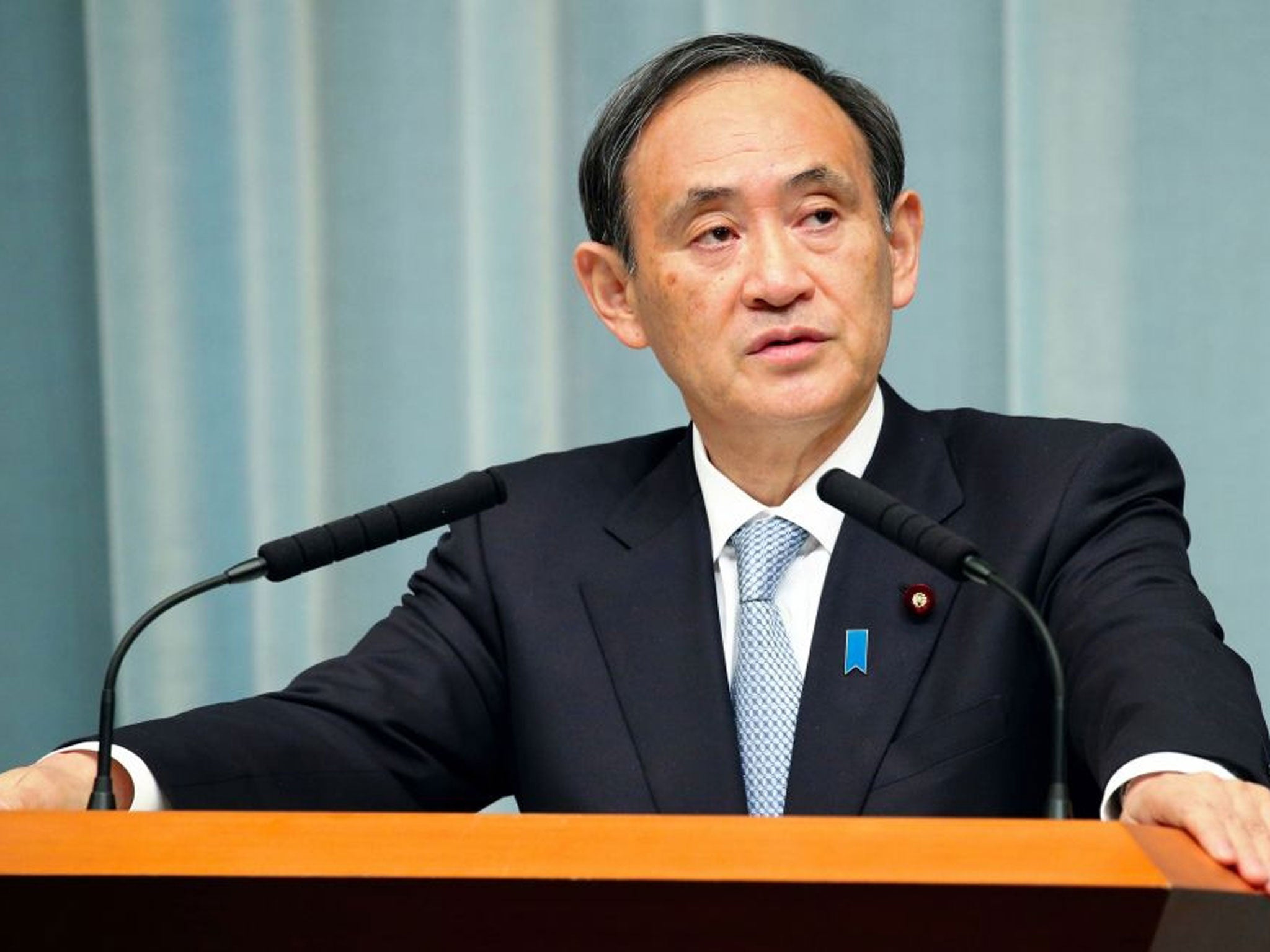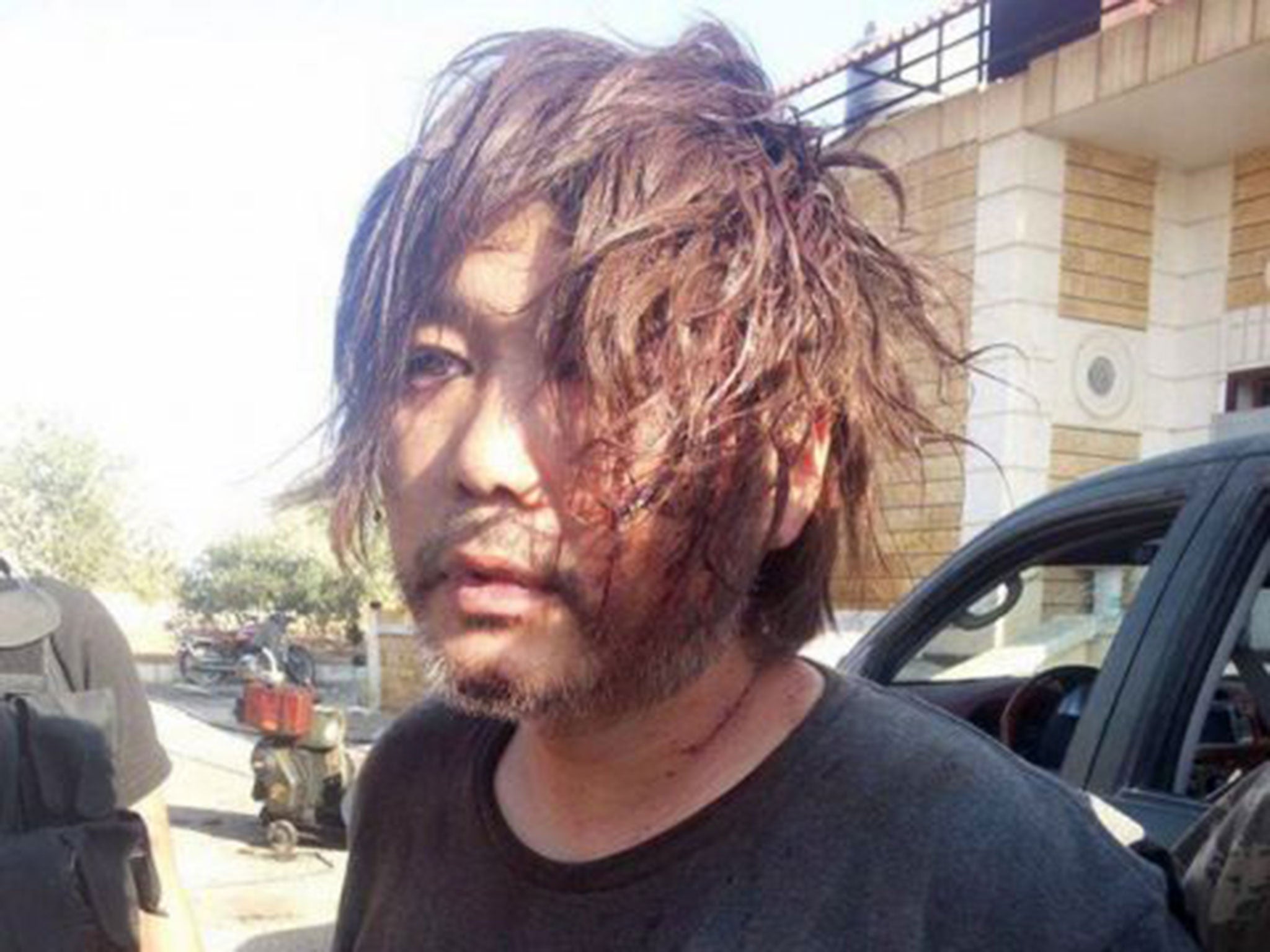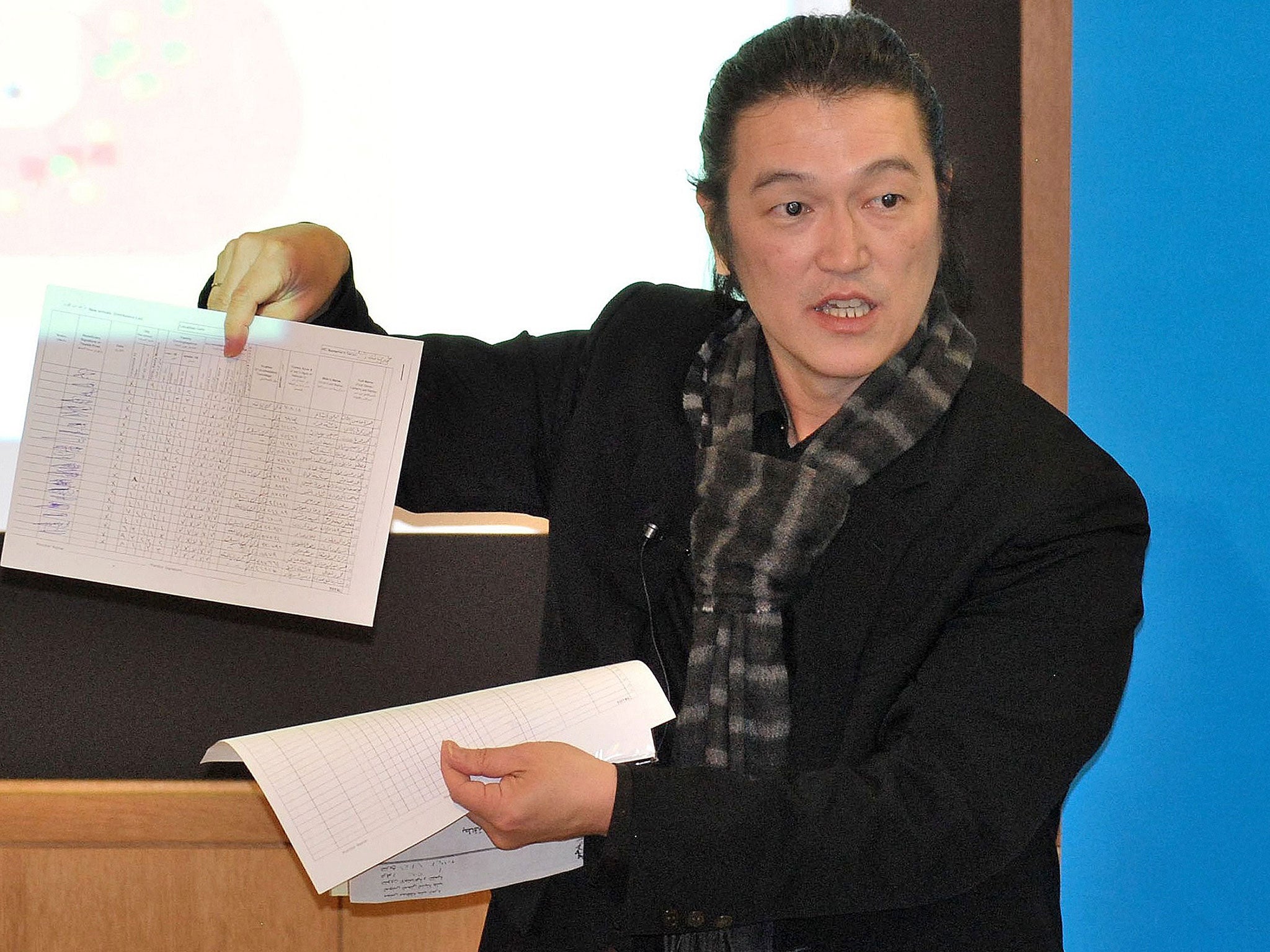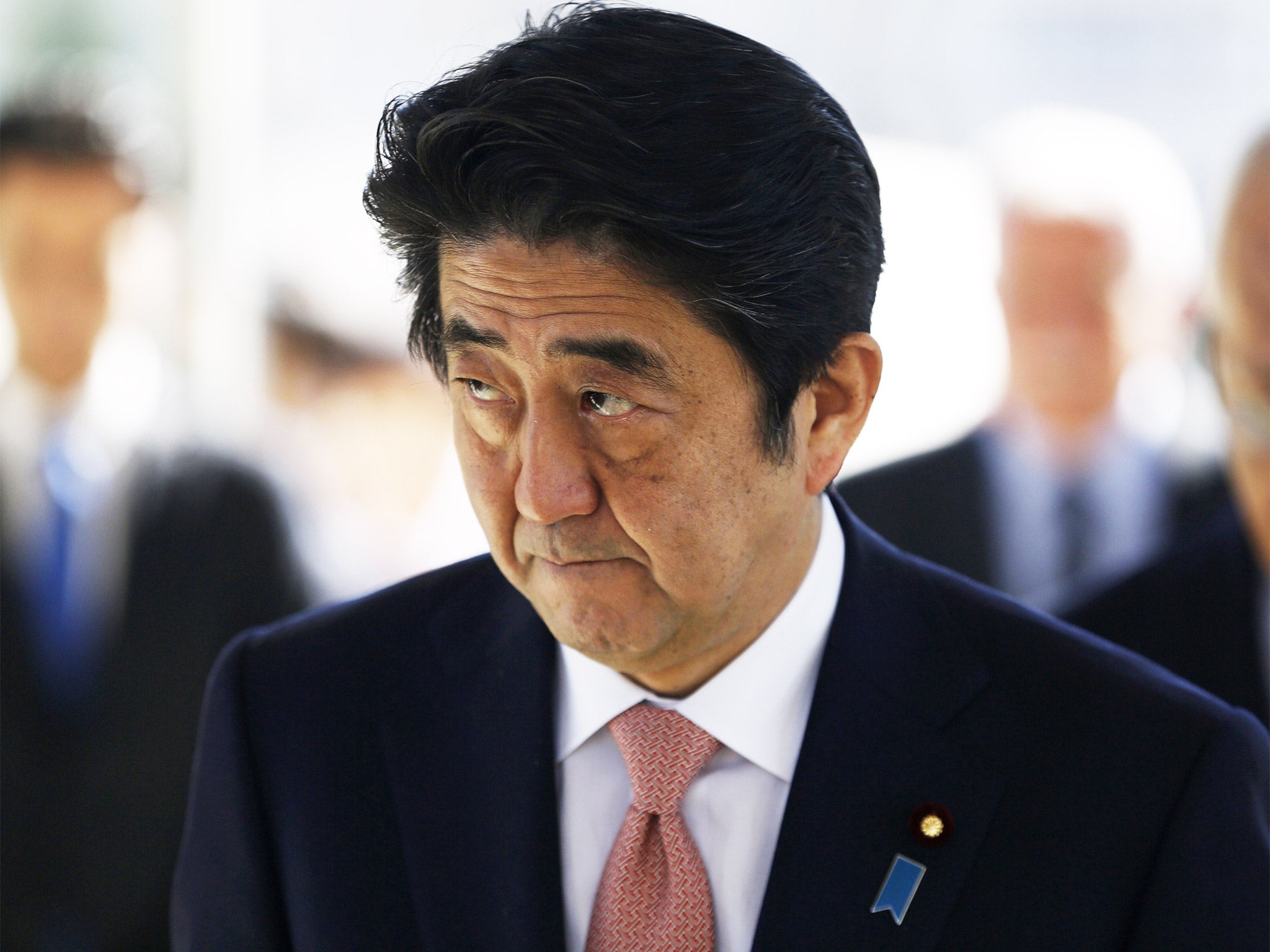Isis Japanese hostage crisis: Officials 'have not been contacted' by the Islamic militants
Isis is demanding a $200 million ransom in exchange for two Japanese hostages

Your support helps us to tell the story
From reproductive rights to climate change to Big Tech, The Independent is on the ground when the story is developing. Whether it's investigating the financials of Elon Musk's pro-Trump PAC or producing our latest documentary, 'The A Word', which shines a light on the American women fighting for reproductive rights, we know how important it is to parse out the facts from the messaging.
At such a critical moment in US history, we need reporters on the ground. Your donation allows us to keep sending journalists to speak to both sides of the story.
The Independent is trusted by Americans across the entire political spectrum. And unlike many other quality news outlets, we choose not to lock Americans out of our reporting and analysis with paywalls. We believe quality journalism should be available to everyone, paid for by those who can afford it.
Your support makes all the difference.Japanese officials have admitted they have had no contact with Isis, as the militant group's deadline nears for Tokyo to pay hundreds of millions of dollars to spare the lives of two hostages.
Members of Isis released a video on Tuesday in which they threatened to kill two Japan hostages within 72 hours, unless the group receives $200 million (£132million). If the militants stay true to their word, that deadline will expire sometime of Friday.
The video was realised after Prime Minister Shinzo Abe pledged during his Middle East tour to give $200 million dollars in aid for refugees displaced by the fighting. In its ransom video, Isis accused Mr Abe of providing money to kill Muslim women and children and destroy homes, a charge the Japanese government rejects.
But Japan is faced with uncertainty, as Suga said it has not received any contact from Isis since the video was released.


It has also highlighted Tokyo’s weak diplomatic connections in the Middle East. And as Japanese diplomats left Syria as the civil war there escalated, it has added to the difficulty of contacting the group holding the hostages.
The only initiative which has been made public was an offer from an expert on Islamic law and former professor at Kyoto's Doshisha University
Appearing at the Foreign Correspondents Club of Japan, Ko Nakata, who is also a former Islamic specialist at the Japanese Embassy in Saudi Arabia, read a message in Japanese and Arabic.
“Seventy-two hours is just too short. Please wait just a bit longer, and do not try to take action immediately,” he said, addressing the militants. “If there is room to talk, I'm ready to go and negotiate.”
He also suggested offering 200 million dollars (£132 million) in humanitarian aid to refugees and residents of areas controlled by Isis, through the Red Crescent Society with Turkey’s mediation.
“I believe this could be a rational, acceptable option,“ he said.
Japanese journalist Kosuke Tsuneoka, who was held hostage in Afghanistan in 2010, also offered to reach out to Isis, with Mr Nakata, in an attempt to free the hostages.
Asked if the Japan government would consider the offer by Mr Tsuneoka and Mr Nakata, Mr Suga said Tokyo was "prepared to consider all possible ways to save the two hostages".

Yesterday, Mr Abe returned from a six-day tour in the Middle East, and vowed not to give in to terrorism. But Mr Abe and other Japanese officials have not said directly whether Japan would pay ransom.
Ransoms are a particularly sensitive issue, as they are one of the main sources of funding for terrorist organisations. Last year, the New York Times reported that al-Qaeda and its affiliates had made at least $125 million (£82,600,000) from kidnap ransoms since 2008 - mostly from European governments making payments through proxies.
Japan has sought and received offers of help from many countries, including Jordan, where an envoy sent by Mr Abe, Japanese vice foreign minister Yasuhide Nakayama, met King Abdullah II.
Prime Minister David Cameron today phoned his Japanese counterpart to offer the UK's support and assistance in the current hostage crisis in Iraq.
Downing Street said that Japanese PM Shinzo Abe reiterated his country's commitment not to pay ransoms to terrorists holding its citizens.
"Time is very short and we are very worried," Mr Nakayama told reporters after his meeting with the King.
Join our commenting forum
Join thought-provoking conversations, follow other Independent readers and see their replies
Comments